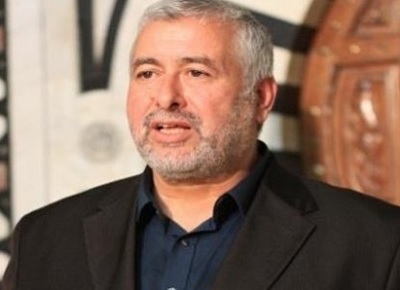In an interview with African Manager, President of the Tunisian Union of Agriculture and Fisheries (UTAP), Abdelmajid Zar called on the government to liberalize the export of milk to absorb the surplus of production.
He, on the other hand, stressed that the national dialogue, which is being held, took stock of the situation and identified strategic choices in order to promote this vital sector, but especially to better capture new markets.
Interview:
What is your assessment of the sector in 2015?
The general framework of our economy is difficult and the situation of the agricultural sector is even more so.
Losses of the agricultural season are estimated at 450 million dinars this year, mainly due to drought, disease and especially the impact of Sousse terrorist operation in June, which has strongly impacted the sector that has seen an unprecedented contradiction.
What does that means?
We, on the one hand, talk about an abundance of supply and overproduction and pinpoint, on the other hand, to post-harvest losses estimated at 30%.
In such a situation, the question arises: do you think the farmer could make profit while he continues to suffer losses?
In general, we can say that the sector continues to suffer because of the abundant supply of several products such as milk, tomatoes and red meat, which overproduction remains a concern for farmers who found stuck facing large amounts that are not sold. For example, milk stocks are currently at 54 million liters? Knowing that during this period production is equal to consumption.
So how to act, knowing that milk collection centers have decided not to receive milk anymore?
This is illogical, especially since the rate will increase during the lactation period (February and March).
What do you think of the large quantities of milk thrown into the sewers because of overstock?
The majority of citizens are not indifferent to this situation, even though this product is destroyed every day because of the refusal of collection centers to receive additional quantities of milk.
Large quantities of milk are destroyed every day even as farmers continue to experience a shortfall due to this overproduction
Will there be any solutions?
Solutions exist and are numerous. The government must, in my opinion, play an important role in addressing them. It should buy a large amount of milk to further reduce the burden of storage of dairy plants.
The other more rigorous solution is to automatically stop the importation of milk powder, especially in this difficult economic climate. At the same time, milk export needs to be definitely liberalized to absorb the surplus production.
Are we capable of opening up to the external market?
For now, we have no choice as the traditional European market continues to exert pressure by imposing excessive conditions on the certification level. That is why we are not able to open up new markets, especially as the logistics are inadequate or non-existent, as is the case of the Russian market.
In such a situation, do you think the national dialogue could play a key role in solving these problems?
The organization of the national dialogue on agriculture on December 23 and that will last for 6 months is of particular importance, because it will define strategic choices in shaping the agricultural policy.
This dialogue aims to identify an approach on the production system, to better position this vital sector in the national economy.
It is a strategic approach because once the production system is affected, we would be forced to import all food products, and it is serious.
What about its added value?
We would put in place an adequate plan to meet all challenges for us to restructure the agricultural sector. That is why this dialogue is based on a participatory, scientific and objective approach.
But this dialogue has sparked controversy especially with the exclusion of the farmers’ union. What do you think?
We have never excluded anyone. All stakeholders were invited to this major event and there is no objection to the participation of anyone.
For the farmers’ union, I think that a delay was recorded in sending invitations, otherwise it is a key player that is part of the national dialogue and is involved in the event.
This is important because this area affects all segments of the population starting with the producers and consumers. So we wanted it to be a participatory dialogue without determining in advance the results to first diagnose the sector.
Have you started to diagnose the situation?
That is our goal. That is why we consider seeking the views of all intervening parties in order to determine the reference topics that we will discuss. It is an open operation to everyone and it is the work of experts in all areas to meet this challenge while highlighting the national interest.
What are your projections about the next agricultural season, knowing that the situation was marked by a rainfall deficit?
The season will be, in my opinion, difficult.














